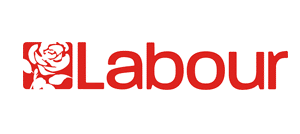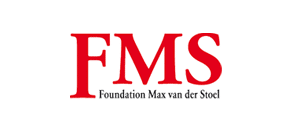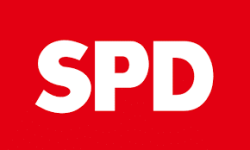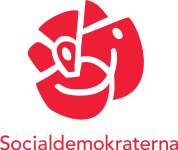Ukraine
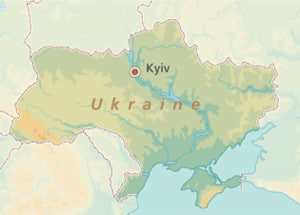
According to UNHCR, nearly 8 million people have fled Ukraine to mainly European countries. In addition, a large number of Ukrainians are internally displaced and located in the much safer western part of the country. The humanitarian situation seems to be grave, especially as Russian forces shell and bombard city centres and crucial civil infrastructure, violating international humanitarian law. With winter approaching, the destruction of energy and water systems is a great concern for the population. Atrocities committed by Russian forces have led to accusations of war crimes, with the Ukrainian government calling the Bucha massacre a genocide. Some refugees have already returned to Ukraine as the situation in some parts of the country has become seemingly more stable.
The Russian invasion of Ukraine shocked the world. Events have continued to unfold quickly since this then, marked by many as a turning point in history. The war has had major negative implications on Ukrainian citizens but also altered its political trajectory. The invasion has united the country’s politics, which had traditionally been split between pro-European and pro-Russian forces. Anti-Russian sentiment has never been so high. On 28 February 2022, Ukraine officially applied for EU membership.
The European Council approved its candidacy on 23 June 2022, alongside with its neighbour Moldova. Although it will likely take years before Ukraine meets the needed EU criteria with regard to democratic procedures, the rule of law, the free-market economy, and corruption, an important hurdle has been taken: EU countries have welcomed Ukraine’s bid for membership. The country’s main priority remains winning the war, while the country awaits more heavy military equipment from NATO and EU allies. Ukraine aims to start negotiations by early 2023, although the European Commission did not start the assessment of the completion of the seven requirements by November 2022.
The war poses both a threat and an opportunity to Ukraine’s democracy. Martial law was introduced by parliament, as decisions need to be taken quickly. The challenge now is to not let the war lead to illiberal shortcuts. Meanwhile, the current situation provides opportunities to rebuild the country and break with “old habits”. There is willingness amongst Western allies to support the country, be it through investments or by providing a pathway for reform through its EU-membership candidacy.
-
Want to get notified by mail when this country gets updated?
Subscribe to our newsflash below!
Key Info
1 Political Situation
Political system
Ukraine has a parliamentary presidential system, which means that on a national level, the country elects a head of state, the president, and a legislature. The president is directly elected by the people for a five-year term. The president needs a majority of the votes in the first round to be elected. Otherwise, a second round is held, in which the two candidates with the highest number of votes in the first round can compete.
The parliament (Verkhovna Rada) has 450 members, elected for a four-year term. Since 2014 the effective number of parliamentarians dropped to 424 due to the occupation of Crimea and the war in the Donbas. In the most recent elections of 2014 and 2019 members, half of the members were elected through proportional representation and the other half by single-mandate constituencies. In 2006 and 2007 elections were held under a proportional system only, which in January of 2020 was decided would be re-introduced for the 2023 upcoming election.
The constitution prescribes that the governmental parties must have a majority in parliament. Thus, minority coalitions are formally not an option for government coalitions. Representative bodies and heads of local government throughout Ukraine are elected simultaneously with the Verkhovna Rada. The current ruling Servant of the People (SoP) party is the first to single-handedly form a government in Ukraine’s political history.
Political situation
Volodymyr Zelensky has been at the centre of Ukraine’s politics for some years. On 21 April 2019, the former comedian and actor won the presidential runoff. He defeated incumbent President Petro Poroshenko with a landslide, gaining 73 percent of the votes. Zelensky’s role in the popular television series “Servant of the People” became reality, as he used to play a teacher-turned president that goes on to wipe out corruption and fight against oligarchs. For a majority of the people, this refers to the political establishment personified, in that election, by Poroshenko, and the government’s failure to end corruption over the years.
Zelensky dissolved the parliament on 21 May 2019 to bring forward the parliamentary elections. He did so in an attempt to gain a majority in parliament which would be needed to pass legislation. With approximately 43.14 percent of the votes, Zelensky’s SoP party was the winner of the election. The party, only founded in 2018, is pro-European and pro-NATO but is other than that quite broad and undefined in its ideology. President Zelensky became Ukraine’s first president since the fall of the Soviet-Union, to rule the parliament with a single majority. However, the low voting turn-out is also historic: only 49.9 percent of the population cast a vote.
When Zelensky ran for president, one of his campaign promises was to tackle the widespread corruption and influence of oligarchs. In this respect, the election results were seen as a victory over the old elites ruling the country alongside oligarchs. But as OSCE and other reports show, oligarchs were heavily involved in the campaigns. Most notably as media coverage is particularly unfairly distributed: it was largely dictated by business and political interests. This did not ensure equal coverage for all the candidates. President Zelensky himself has business ties to oligarch Ihor Kolomoisky, owner of 1+1, one of Ukraine’s most popular TV channels, which had always broadcasted his shows and has given Zelensky a powerful platform.
On 25 October 2020, Ukraine held local elections, viewed by some as a mid-term referendum for Zelensky’s political party. These were held under a new electoral code that decentralized power from Kyiv to local governing bodies. Major changes included a four-time decrease in the number of local councils, the introduction of a proportional system in communities with more than 10,000 voters and a 40 percent gender quota on candidate lists. The gender quota caused quite a stir among the political parties, as they quickly had to look for more women candidates. Old politicians often regrouped into new local parties in preparation for the elections.
Zelensky’s Servant of the People party did not manage to integrate local politicians, and the results showed it. The president’s party performed particularly poorly, while the pro-Kremlin Opposition Platform-For Life party did comparatively well. Across the country, national parties proved themselves incapable of overcoming the local parties of individual city mayors. These results showed a welcome to the decentralization of politics and a slow weakening of the centre.
In 2021 Zelenksy and his SoP were also struggling to implement their ambitious agenda, specifically with regards to its anticorruption measures. He faced pressures from inside his party and increasingly surrounded himself with the “familiar faces” to Ukrainian politics that he promised to break with. As a result, his approval ratings had reduced drastically, from a whopping 70 percent in 2019 down to only 23 percent in January of 2021. Something needed to be done. With the backing of the new Biden-led government Zelenksy took a stronger stance against Russia and Russian influence in the country. Out of the blue, the administrations announced it would impose sanctions on individuals and corporations that had close ties to Russia.
There were many others ways in which the administration sought to make progress in the year before the Russian invasion. To improve political neutrality a new law was adopted to limit the influence of oligarchs on national politics in September 2021. The legislation will prevent wealthy individuals from funding political parties or taking part in the privatization of state assets and major companies. Implementing further such reforms will remain difficult so long the war lingers on. Priority one is to liberate more of the Russian-occupied territories in the East. In the years after the country’s newly approved EU membership candidacy might prove an important incentive for further reform, certainly if the newly emerged political unity lasts.
Ukrainian-Russian relations leading up to the invasion
In November 2013 a small protest broke out after President Yanukovych abandoned a trade agreement with the European Union, favouring closer ties with Russia. Online videos of police beating protesters later at night sparked a much larger outrage throughout the country, with hundreds of thousands of people taking to the streets within days, dubbed as the Maidan protest. The Maidan protests resulted in pro-EU protesters occupying the Maidan square and taking control of government buildings for months. Eventually, clashes between pro-EU protesters and the police resulted in an apogee on 18 February 2014, when over 70 protesters were killed. In the political turmoil that followed, President Yanukovich fled the country to Russia.
In the weeks that followed, pro-Russian protests broke out in eastern Ukraine and the southern province of Crimea. Pro-Russian and Russian forces took control of government buildings and strategic military complexes in the Crimea, increasing tensions between Ukraine and Russia. On 16 March 2014 Crimea joined Russia through a referendum in which an suspiciously overwhelming majority voted in favour of Russia. The result of the referendum was not recognized internationally. Both the EU and US governments argue that the referendum violates both the Ukrainian constitution and international law.
In the months following the annexation of the Crimea by Russia, the conflict escalated further. Malaysia Airlines plane MH17 was shot down above eastern Ukrainian territory, killing all 298 passengers on board. The event sparked international outrage and triggered the close involvement of the international community. The EU, US and other countries intensified sanctions on pro-Russian separatists and Russia. Meanwhile, the provinces of Donetsk and Lugansk declared themselves independent from Ukraine. Finally in September of 2014, the parties agreed on a ceasefire in Minsk, Belarus.
This so-called Minsk I ceasefire was violated continuously and got out of control in January 2015. In February, Ukraine, Lugansk, Donetsk and Russia agreed to the Minsk II accords, and a new ceasefire was born. This ceasefire was violated intensively in the first week too, when pro-Russian separatists opened an offensive on the strategic city of Debaltseve. After this offensive though, both parties seemed to abide by the Minsk II accords fairly well.
Western sanctions on eastern Ukraine and Russia remained in place, not acknowledging Russia’s annexation of Crimea. Ukrainian-Russian relations were cold, but seemingly stable. This all changed by late 2021, when Zelenksy’s stance towards Russia hardened and Russian forces gathering around Ukraine’s border for “military practice operations”. Although Biden and Zelenksy had been warning for a full-scale Russian invasion for some time, the unthinkable happening in February 2022. With the violation of the Minks accords, the West agrees that Putin has thereby declared war against democracy, the rule of law, and the possibility for a country to decide its own future.
EU accession?
Ukraine applied for membership in February 2022, as a direct result of the Russian invasion, and obtained candidate status in June 2022. Obtaining candidate status, created enormous hope, confidence and additional motivation to reform the country. Given the progress made and ongoing commitment to reform, the European Commission recommends in its 2023 enlargement report opening accession negotiations with Ukraine. Despite the fact that the country is at war, reforms in the areas of democracy, rule of law, and more are underway in the background. Four of the seven steps Ukraine needed to complete before negotiations can begin have been accomplished: selection procedures for Constitutional Court judges, vetting of Supreme Court candidates, anti-money laundering legislation, and a media law. Corruption is being fought increasingly effectively and needs attention to continue to be countered. The influence of oligarchs should be reduced and the proposed law for this should be implemented as soon as possible. The economy is suffering due to the war, which makes creating a functional market economy difficult. Structural challenges are rife but reconstruction offers an opportunity to modernise the economy and make it ready for the European single market. Regional cooperation with European countries has been strengthened thanks to the war, bringing more military and financial cooperation. Foreign policy is almost entirely in line with that of the EU. The question is how the EU will handle the situation when Ukraine is formally ready to join, but still at war with Russia. Allowing a country to join at war has never happened before and raises new issues when it comes to ensuring common security.
Political rights and civil liberties
According to the NGO Freedom House, Ukraine is viewed as ‘partly free’, though this status does not reflect the conditions in the occupied Ukrainian territories. Corruption is still widespread in the country, and efforts to combat it have met resistance. In Ukraine distrust remains high regarding the judiciary. The country has long suffered from corrupt and politicized courts. Individuals with financial resources and political influence can often escape wrongdoing, and a disproportionate number of those facing trial are in pretrial detention. Efforts to reform the judiciary have so far met significant resistance.
In late 2020, the Constitutional Court annulled vigorous anticorruption legislation. As a reaction, President Zelensky attempted to dissolve the Court, though this did not actually take place. Instead, parliament passed new weakened legislation, replacing the annulled anticorruption measures. In July 2021, it also backed legislation to relaunch the deeply compromised High Qualification Commission of Judges (HQCJ) and the High Council of Justice (HCJ). Since then both Ukrainian and independent international experts would participate in the future selection process for judicial vacancies. However, the judiciary opposed the reforms. The refusal to comply threatens to derail the promise of real judicial reform in Ukraine.
Regarding media, Ukraine has a mixed landscape. While there is a law on media ownership transparency, the media landscape is under the strong influence of oligarchs, limiting diversity and giving the oligarchs political influence. The overall media landscape therefore lacks objectivity and is “divided along political lines”, concentrated in the hands of a few owners. Furthermore, attacks against journalists and civil society activists are prevalent, while police response is often inadequate.
Human Rights and Gender Equality
Human rights in Ukraine continue to be affected by the armed conflict in the east and the COVID-19 pandemic. The conflict not only threatens civilian’s physical safety, but also limits their access to food, medicines, adequate housing, and schools. Travel restrictions, imposed by both the Russia-backed armed groups and the Ukrainian government, have had a devastating impact on social and economic rights, driving civilians deeper into poverty. Women are particularly affected by the COVID-19 pandemic, as they account for over 80% of Ukraine’s healthcare and social workers, and domestic violence cases have increased.
Other than the effects of COVID-19. Gender inequality in Ukraine also takes other forms. Gender inequality is prevalent in political participation (women hold 21% of the seats in parliament), participation in managerial positions (23% of the management positions are held by women), and the gender pay gap (women earn on average 23% less than men). According to Freedom House, rights groups have reported that employers openly discriminate on the basis of gender and age.
According to the law, minorities such as Roma and LGBT+ people are officially protected in Ukraine, though violence against these groups continues to be a major problem. Anti-LGBT+ attacks remain prevalent, and perpetrators almost always get away with it. Both Roma and LGBT+ people and groups generally only receive police protection or justice for attacks against them when there is intense pressure from civil society or international actors. In these cases, human rights are still under pressure.
2 Elections
Parliamentary elections
On May 20th 2019, the day of his inauguration, President Volodymyr Zelensky announced his intention to dissolve parliament and call early elections. On that day the presidential decree set the elections for July 21, 2019, and Zelensky dissolved parliament because the current coalition didn’t have the support of the majority of the parliament. 62 MPs filed a constitutional challenge against the decree, but the Constitutional Court ruled in favour of early elections on the 20th of June. After the election results were published, it became clear that the president’s party, Servant of the People, won a majority. The party won 254 seats out of 424, thereby enabling it to form a government without a coalition. For the first time in the history of independent Ukraine, one party could control the cabinet of ministers, the office of the president and parliament on its own. Many consider the victory of Zelensky to be the result of disappointment in the previous government and the continuous power of oligarchs in Ukrainian society.
Campaign
The OSCE reported that during the campaigning period contestants were able to freely convey their messages to the electorate. The campaign was seen as competitive with a huge amount of candidates representing a wide spectrum of political options. Despite this, vote-buying remained widespread in many regions of the country, especially in single-vote mandate districts. The National police initiated over 125 criminal investigations concerning vote-buying. On top of that, several incumbent MPs and mayors, who stood as candidates, often misused their incumbency by promising and providing benefits to voters.
Election results 2019
Due to the war in eastern Ukraine elections couldn’t be held in 26 different constituencies, and as a result, 26 out of 450 seats were left vacant. With all votes counted, the Central Election Commission (CEC) showed five parties passing the 5 per cent threshold, thus entering the Ukrainian Parliament (Rada). Voter turnout was historically low with only 49.9 per cent of the population casting their vote.
| Party | Seats party lists* | Seats constituencies** | Total | % |
| Servant of the People | 124 | 130 | 254 | 43.16 % |
| Opposition Platform — For Life | 37 | 6 | 43 | 13,05 % |
| Fatherland | 24 | 2 | 26 | 8,08 % |
| European Solidarity | 23 | 2 | 25 | 8,10 % |
| Holos (Voice) | 17 | 3 | 20 | 5,84 % |
| Opposition Bloc | – | 6 | 6 | 3,03 % |
| All-Ukrainian Union “Svoboda” | – | 1 | 1 | 2,15 % |
| Self Reliance | – | 1 | 1 | 0,62 % |
| United centre | – | 1 | 1 | – |
| Bila Tserkva Together | – | 1 | 1 | – |
| Independent single constituencies | – | 46 | 46 | 10,85 |
* Proportional lists
** Single-mandate constituencies
The elections resulted in a major win for Zelensky’s Servant of the People, along with which three new political parties entered the Rada, namely Opposition Platform – For Life, European Solidarity and Holos (Voice). Opposition Platform consists of former members from its predecessor For Life, Opposition Bloc Ukraine Forward! and Ukrainian Choice. The party is openly pro-Russian and anti-EU. European Solidarity is essentially a rebranding of “Poroshenko Bloc” and aims to continue Porsohenko’s political agenda. Holos is founded by singer Sviatoslav Vakarchuk, who presents himself as anti-establishment and is considered to be a Liberal, pro-EU and pro-NATO. Thanks to Servant of the People and Holos, 80 percent of MPs are newcomers. Furthermore, the average age of MPs has gone down from 48 to 41 years compared to the previous parliament. A record number of 87 women entered the Rada as a result of the elections, making up 19.3 per cent of the total number of deputies. This is a significant increase from 2014 when 11.1 per cent of the parliament was made up of women.
Presidential elections
On 21 April 2019 the presidential runoff was won by comedian and frontrunner Volodymyr Zelensky. He defeated incumbent President Petro Poroshenko with 73 percent of the votes. Poroshenko got 25 percent of the votes. The turnout of the votes was just over 62 percent. On 31 March 2019, the first round of presidential elections was held in Ukraine. Comedian Volodymyr Zelensky then already enjoyed the majority, namely 30.23 percent, of the votes. Incumbent President Petro Poroshenko was second with 15.95 percent, followed by Bativshchyna Party leader Yulia Tymoshenko with 13.38 percent.
Frontrunner Zelensky, 41 years old, is best known for his role in the political comedy series Servant of the People where he plays a teacher that becomes president of Ukraine through some extraordinary circumstances and proceeds to fight corruption and shake up the political system. During his anti-establishment campaign, he mocked his political rivals with jokes, sketches and other performances. Zelensky promised that, if elected, he will fight against corruption and for reforms. Moreover, he promised to address and implement peace talks for eastern Ukraine. He also wanted to implement a new law on ‘People’s Rule’ to establish referendums where Ukrainians could express their expectations for the authorities. More than 35 million people were eligible to vote in the first round.
Election results
|
Candidate |
Party |
First-round |
Second round |
|||
|
Votes |
% |
Votes |
% |
|||
| Volodymyr Zelensky | Servant of the People | 5,714,034 | 30.24 | 13,541,528 | 73.22 | |
| Petro Poroshenko | Independent | 3,014,609 | 15.95 | 4,522,320 | 24.45 | |
| Yulia Tymoshenko | Fatherland | 2,532,452 | 13.40 | |||
| Yuriy Boyko | Independent | 2,206,216 | 11.67 | |||
| Anatoliy Hrytsenko | Civil Position | 1,306,450 | 6.91 | |||
| Ihor Smeshko | Independent | 1,141,332 | 6.04 | |||
| Oleh Lyashko | Radical Party | 1,036,003 | 5.48 | |||
| Oleksandr Vilkul | Opposition Bloc | 784,274 | 4.15 | |||
| Ruslan Koshulynskyi | Svoboda | 307,244 | 1.62 | |||
| Yuri Tymoshenko | Independent | 117,693 | 0.62 | |||
3 Political Parties
Social Democratic Parties
Other Parties

Number of seats: 235
Servant of the People (SoP) party is the successor of the Party of Decisive Change that existed since April 2016 and was founded by Eugene Yurdiga. The Servent of the People party was created by President Volodymyr Zelenskiy in 2018 and was named after the popular TV series in which he played his most famous role: that of an ordinary school teacher who unexpectedly gets elected as President of Ukraine. The party does not have a clear ideology, and seems mostly focussed on eliminating corruption in the country. It is best defined as a liberal, pro-European, centrist party with some populist characteristics.
In the 2019 parliamentary election the party won 124 seats on the nationwide party list (43.16% of the votes) and 130 constituency seats. This gave President Zelensky a strong mandate. The following year the party failed to expand its success in the local elections. Partly due to Zelensky's growing unpopularity the party failed to gain a strong foothold in any of the larger Ukrainian cities. One of its challanges has been to live-up to its anti-establishment and anti-corruption ambitions. Since the Russian invasion the popularity of Zelensky and the SoP have increased dramatically again due to their well-managed resistance mobilisation.

Number of seats: 27
European Solidarity is the rebranded party of former President Petro Poroshenko, previously known as Bloc Petro Poroshenko, which had been created on 27 August 2014. Poroshenko presented his new party after his defeat in the presidential elections in April 2019, and in the run-up to the early parliamentary elections on July 21, announced by the new President Volodymyr Zelensky. Poroshenko remains Zelensky's main advisery and the European Solidarity the largest opposition force. The 2021 polls suggested a neck-on-neck race between Zelensky's Servant of the People and Poroshenko's European Solidarity.
However, the popularity of Poroshenko and European Solidarity decreased after the invasion, due to the country rallying around the president and his government. The country's politics has united, with also the European Solidarity supporting many of the government's policies. Naturally the pro-European party is strongly opposed to the Russian invasion. European Solidarity has a central-right, conservative ideology. Other values include Christian democracy, liberalism and pro-Europeanism.
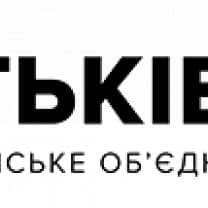
Number of seats: 24
As the core party of the former Yulia Tymoshenko Bloc (BYuT), Batkivshchyna has been in parliament since the 2002 parliamentary elections. After the November 2011 banning of the participation of blocs of political parties in parliamentary elections, the party became a major force in Ukrainian politics independently. In the 2012 parliamentary elections the party also added "United Opposition" to its name, aligning several other parties under its colours.
Tymoshenko was released from prison during the Maidan revolution of 2014, as Yanukovich was ousted, but hasn’t managed to regain the prominent role that she had in Ukrainian politics. However, through her leadership of the BYuT she mantains a minor role in Ukrainian politics even untill after the invasion. The party is best described as pro-European, Christian-democratic, nationalist and somewhat populist, also defined as centre-right in its ideology. It currently holds 24 seats in the national parliament.
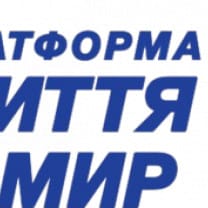
Number of seats: 22
Platform for Life and Peace is a parliamentary group created after the ban of the pro-Russian Opposition Platform - For Life. This party had been quite successfull still in the 2020 local election. Although it openly condemned the invasion the party was abolished under martial law on the basis of ties with the Kremlin. About half of its party members formed itself into a new political bloc, which is now pro-European, but with the interest of the Russian minority in Ukraine at heart.
The party announced it would not include politicians like Viktor Medvedchuk with close Russian ties, some of which fled the country during the invasion. The members of parliament that the new platform includes are committed to rebuilding Ukraine after the war. Their leader is Yuriy Boyko, a more moderate politician than his predecessors at the For Life Opposition Platform.
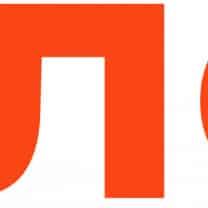
Number of seats: 20
Holos (Voice) is a liberal and pro-European party founded by famous Ukrainian musician Svyatoslav Vakarchuk. He presented himself as an anti-establishment candidate and promised that no incumbent MPs would be on the party’s list for the parliamentary elections of 2019. The party is focused at fighting corruption trough de-oligarchisation and increasing the efficiency of the state. It was considered a centre-right party which demands more efforts from the government to battle the "Russian aggresor". However, in March of 2020 Vakarchuk stepped down as party leader. This paved the way for Kira Rudyk.
In the local elections of 2020 the party still enjoyed some minor successes, but the following year proved a difficult one for the party. July 2021 saw a split within the party, with dissatisfaction about the party's leadership. What triggered this was an incident where Rudyk and four others in the party backed the government's proposal to delay the introduction of Ukrainian language quotas in the film industry. This triggered outrage amongst MPs against the bill. Since then eleven former MPs have formed their own breakaway movement called Justice. Only nine MPs still hold true to Holos and have faith in Rudyk's leadership. The party is best defined as centre-right and is mainly popular amongst those Ukrainians living abroad or in the West of the country.
Number of seats: 17
For the Future is a political party that currently supports the government by Servant of the People. It is directly supported by oligarch Ihor Kolomyskyi. The party gained its name in 2019, after it was founded as the Ukraine of the Future party in 2008. Since 2012 the party participates in nationwide elections, but failed to gain any seats. In 2019 over twenty parliamentarians agreed to form a bloc which they called For the Future. This transformed into a political party too.
The party did well during the 2020 local elections, gaining some mayoral positions. It gained over eleven percent of the total number of seats available. As the bloc is a merger of many political groups and independents, it is hard to categorise For the Future. It is best described as a big-tent organisation, with populist and economic nationalist tendencies. Since established, the party has been led by former businessman and governor Ihor Palytsia, who was elected as an independent candidate in the 2019 election.

Number of seats: 18
Dovira is literally translated as trust or credence. The parliamentary bloc was formed after the 2019 elections and then included 20 independent elected MPs. Even though the group was never officially transformed into a political party, candidates campaigned under the banner of Dovira during the 2020 local elections. It has quite some minor success in this regards, by gaining over three percent in the mayoral vote and over one percent of the nationwide vote.
Since its establishment the party has been headed by Oleh Kulinich. It has been in support of the government by Servant of the People as of the 2019 election. As it is a bloc of several political parties and independents it is difficult to define Dovira's ideology. It is best described as a big-tent and regionalist group.
Number of seats: 17
Restoration of Ukraine is a parliamentary group that was formed in May of 2022 on the Telegram account of MP Yaroslav Zheleznyak. A number of seventeen MPs joined the bloc, most of them coming from the Opposition Platform - For Life, but also from Servant of the People and Dovira. The group is led by Maxim Efimov.
4 Biographies
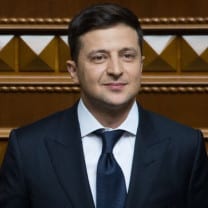
Volodymyr Zelensky was born in the city of Kryviy Rih on January 25, 1978. He was born in a Jewish family and grew-up as a native Russian speaker. In 1995, he entered Kryviy Rih Institute of Economics, which is part of Kyiv National Economic University, where he received a law degree. Afterwards, in 1990, he became famous as a comedian through a stand-up comedy TV show: Servant of the People. In this series Zelensky plays a teacher-turned president, that goes on to fight corruption and the influence of oligarchs in the country. In 2019, what had simply been a tv series, became a reality as Zelensky was elected president of Ukraine with the support of his new party: Servant of the People (SoP).
At first Zelenksy enjoyed widespread popularity and support. He presented himself as anti-establishment and anti-corruption, also promising to end the country's dispute with Russia and create more unity between the Russian- and Ukrainian speaking parts of the country. However, reforming the country proved difficult with many "familiar faces" to Ukrainian poltics continue to surround the president. And negotiating a simple solution with Putin proved rather complicated too. Since the beginning of 2021 his stance towards Russia hardened, even more so when Russia gathered its troops around his country for "military training operations".
Since the invasion Zelensky's popularity and renown increased immensly with his role as "protector of the country". He made impact through his online and televised appearances, often in military uniform, and his determination to stay within Ukraine in times of war. He has played a fundamental role in achieving financial and military support for Ukraine.
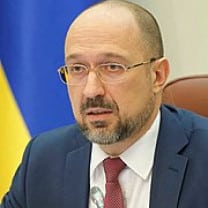
Denys Smyhal was born on 15 of October 1975 in Lviv. He graduated from Lviv Polytechnic in 1997. From his graduation in 1997 until 2005 Smyhal worked as an accountant in various companies. After that he became Deputy General Director of a company called "LA DIS" for a few months. He went on to become the Director of the investment company "Comfort-Invest" for two years, before becoming General Director of a company called "Roasninvest LLC" until September 2009. He is often described as an entrepeneur.
Smyhal also held some governmental position and held several leading roles in Ukraine's Lviv Oblast until December 2013. From the 1st of August 2019 Smyhal served as the Govenor of Ivano-Frankivsk Oblast, before being appointed Minister of Regional Development on February 4th 2020. Smyhal replaced Oleksiy Honcharuk as Prime Minister of Ukraine in March 2020. As Prime Minister he was in charge of the country's handling of the Covid-19 pandemic, which remained his main challenge untill the invasion of Ukraine in February 2022.
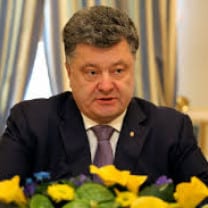
Petro Poroshenko was born on 26 September 1965. He is a Ukrainian billionaire businessman and was elected as the fifth President of Ukraine on 25 May 2014, which he remained untill 2019. As a pro-Western politician, experts are unclear why Poroshenko lost the 2019 election in such a decisve manner to Zelensky. His politics aimed to promote the Ukrainian language, nationalism and "inclusive capitalism". Previously Poroshenko served as the Minister of Foreign Affairs from 2009 to 2010, and as the Minister of Trade and Economic Development in 2012. From 2007 until 2012, he headed the Council of Ukraine's National Bank.
Outside politics, Poroshenko owns, along with a number of other companies, a large-scale confectionery business, which has earned him the nickname of 'Chocolate King'. After losing the Presidential elections to current President Zelensky, Poroshenko remained in politics, heading his European Solidarity party. Since the invasion he has often been seen with rifles and bullet-proof vests and is very outspoken in his anti-Russian rhetoric. Despite this, the country has rallied around President Zelensky at the expense of his own popularity. Where in polls before the invasion he could count on similar support as Zelenksy, he has now fallen far behind.

Honcharuk was born in 1984 and, since 2005, worked as a lawyer and as the head of different law departments within various companies. In the 2014 Ukrainian parliamentary election Honcharuk unsuccessfully tried to get a parliamentary seat for the Force of People party. After the election, he became an adviser to ecology minister Ihor Shevchenko and First Vice Premier Stepan Kubiv. At the end of 2018, Honcharuk co-created the right-liberal NGO "People are Important", which was supposed to grow into a political party. The party was not deemed ready enough to take part in the snap July 2019 Ukrainian parliamentary election.
In 2019 Honcharuk was appointed Deputy Head of the Office of the President of Ukraine Zelensky. He was responsible for the block of economic development and continuation of reforms. In August he was officially nominated for the post of Prime Minister and the parliament easily approved Honcharuk with 290 deputies voting in favour of his appointment. Honcharuk was the youngest Prime Minister of Ukraine since he was 35 at the time of his appointment. Honcharuk resigned as prime-minister on 4 March 2020 after a scandal. A recording of a similiar voice to him was published noting the lack of economic knowledge of both himself as well as the president. Zelensky initially refused to accept his resignation, but in the end approved a new Prime Minister: Denys Shmyhal
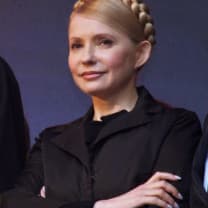
Yulia Tymoshenko was born in 1960 in Dnepropetrovsk. In 1984 she graduated from the Dnepropetrovsk State University, Faculty of Economics. After graduation, she worked as an engineer-economist in a machine-building plant in Dnepropetrovsk. Later she went into private business and together with her husband headed several commercial enterprises, including oil and gas trade. In 1997 Tymoshenko became first deputy to the leader of the All-National Movement Hramada, Pavel Lazarenko and entered parliament for the first time. In a few years time she grew into the role as leader of the opposition.
In 2004, Bloc Yulia Tymoshenko and Yushchenko’s Our Ukraine announced the creation of the Force coalition to support Yushchenko’s candidacy. After mass demonstrations (dubbed ‘Orange Revolution’), Yushchenko became president and Tymoshenko PM. The relationship between them deteriorated over power struggles though. She almost became President, losing to Victor Yanukovych by 3 per cent of the votes in 2010. Found guilty of abuse of power she was sentenced to prison, but released during the Maidan revolution. After her release she became politically active again, which she remains after the invasion.
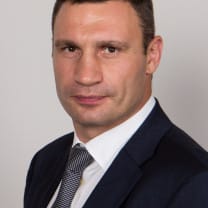
Vitali Volodymyrovych Klitschko was born on 19 July 1971 in Kyrgyzstan. He is a Ukrainian politician and the current Mayor of Kiev and former professional boxer. Klitschko became actively involved in Ukrainian politics in 2005 and combined this with his professional boxing career until his departure from boxing in 2013. In 2005, Klitschko was appointed as an adviser to President Yushchenko. He was a leading figure in the 2013–2014 Euromaidan protests and announced his possible candidacy for the Ukrainian presidency but later withdrew and endorsed Petro Poroshenko. He was elected Mayor of Kiev on 25 May 2014.
Klitschko sees the European Union as Ukraine's model for future political and economic development. He is also in favour of NATO-Ukraine cooperation. Klitschko's main concern is social standards and the economy of Ukraine. Klitschko managed to be re-elected in 2020 as Mayor of Kiev with his Ukrainian Democratic Alliance for Reform (UDAR) party. He is also remains endorsed by Poroshenko's European Solidarity party. Since the invasion of Ukraine, Klitschko has been praised as one of the leading figures of the Ukrainian recistance movement. He successfully guided the inhabitants of Kiev through the Russian siege of the city.
Subscribe to our newsletter
